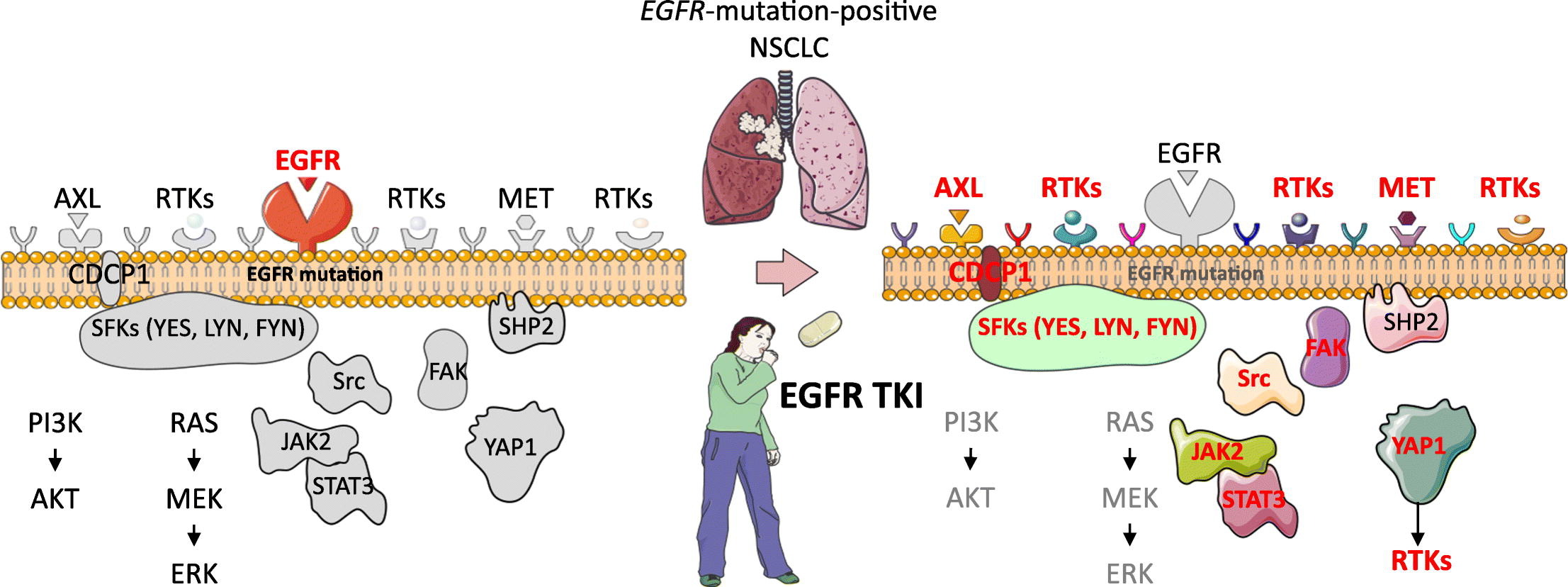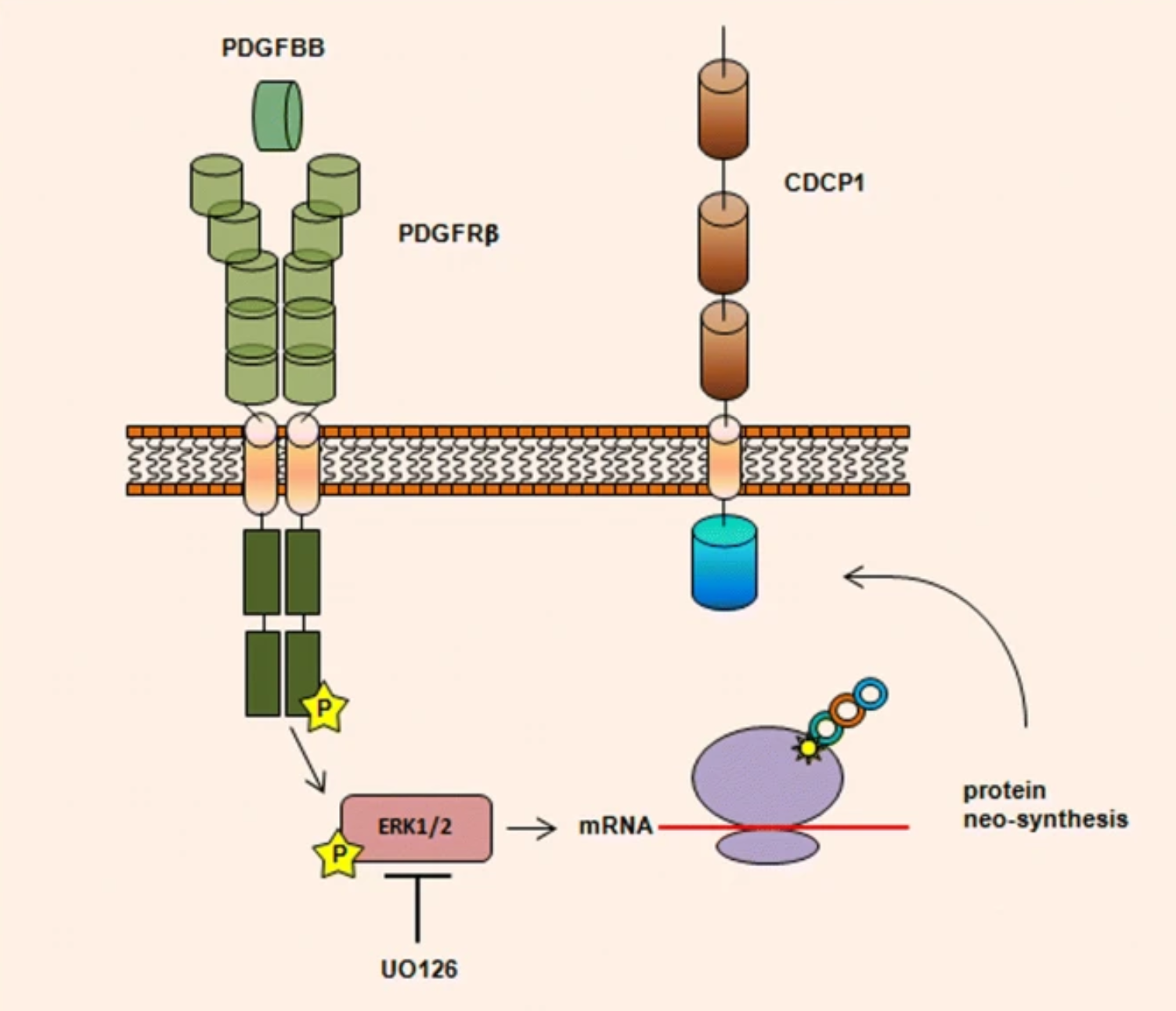What is CDCP1?
CDCP1 (CUB domain-containing protein 1), also known as CD318, SIMA135, gp140, or TRASK, is a type I transmembrane glycoprotein. It is prominently expressed in various stem and precursor cells, including hematopoietic stem cells and neural progenitor cells. CDCP1 plays a crucial role in processes such as cell adhesion, migration, and survival.
In cancer treatment, CDCP1 mainly plays a role in tumor progression and metastasis. Aberrant expression of CDCP1 is associated with multiple types of cancer, including prostate, colon, lung, and breast cancer. It promotes tumor invasion and metastasis by regulating downstream tyrosine phosphorylation signaling pathways such as PI3K/Akt, PKCδ, SRC, and ERK/MAPK.
Given its key role in cancer biology, CDCP1 is considered a promising therapeutic target. Researchers are actively developing drugs against CDCP1, aiming to inhibit its function and thus prevent tumor growth and spread. These efforts are expected to advance cancer treatment and improve patient outcomes.

Mechanistic role of CDCP1 in tumors
CDCP1 is highly expressed in various cancers, including breast, lung, colorectal, ovarian, renal, liver, pancreatic, and hematopoietic malignancies .
CDCP1 acts as a hub for oncogenic signaling, interacting with multiple pathways that promote cancer cell survival, growth, and metastasis. A key mechanism involves the SRC/PKCδ signaling axis. Proteolytic cleavage of CDCP1 generates a C-terminal fragment (CTF) that forms a complex with SRC and PKCδ, leading to the activation of AKT. This activation inhibits apoptosis and enhances cancer cell survival .
In addition, CDCP1 participates in the PI3K/AKT, WNT, and RAS/ERK pathways, which are critical for tumorigenesis. CDCP1 also intersects with metabolic pathways, such as the oxidative pentose phosphate pathway and fatty acid oxidation, further supporting cancer cell proliferation and resistance to therapy .
Overexpression of CDCP1 is associated with poor prognosis and advanced disease stage, making it a potential biomarker and therapeutic target. Targeting CDCP1 with specific drugs could improve cancer detection and treatment outcomes.

The role of CDCP1 in various tumors
Breast Cancer
In breast cancer, particularly triple-negative breast cancer (TNBC), CDCP1 is highly expressed and associated with poor prognosis. It promotes tumor progression through the PDGFRβ/ERK1/2 pathway, enhancing cell migration and invasion. CDCP1 also interacts with HER2, contributing to trastuzumab resistance in HER2-positive breast cancer.
Lung Cancer
CDCP1 is upregulated in lung adenocarcinoma and is linked to poor survival. It plays a role in cell adhesion and mobility, potentially through the WNT/β-catenin pathway3. Elevated levels of circulating CDCP1 have been identified years before lung cancer diagnosis, suggesting its role in early carcinogenesis.
Colorectal Cancer
In colorectal cancer, CDCP1 enhances Wnt signaling, promoting nuclear localization of β-catenin and E-cadherin, which are crucial for tumor initiation, growth, and metastasis. High CDCP1 expression is predictive of recurrence and poor patient survival.
Ovarian Cancer
CDCP1 is upregulated in high-grade serous ovarian cancer and clear cell carcinoma. It amplifies pro-tumorigenic signaling by interacting with EGFR and HER2, promoting cell migration and survival6. Anti-CDCP1 antibodies have shown potential in inhibiting tumor growth and metastasis.
Kidney Cancer
In clear cell renal cell carcinoma, CDCP1 is a target gene of hypoxia-inducible factor 2α (HIF-2α). It promotes cancer cell migration and metastasis under hypoxic conditions, correlating with decreased overall survival.
Liver Cancer
CDCP1 is involved in liver cancer by supporting cancer cell survival and growth through various signaling pathways, including SRC/PKCδ and PI3K/AKT. It also plays a role in liver regeneration by identifying hepatic stem/progenitor cells.
Pancreatic Cancer
CDCP1 is a prognostic factor in pancreatic cancer, promoting cell migration, invasion, and extracellular matrix degradation through the SRC/PKCδ pathway. It is associated with poor survival and aggressive tumor behavior.
Hematopoietic Malignancies
CDCP1 is expressed in acute myeloid leukemia (AML) and other hematopoietic malignancies. It identifies leukemic stem/progenitor cells and is associated with poor prognosis. CDCP1 plays a role in early hematopoiesis and leukemia progression.
CDCP1 is overexpressed in various cancers, including breast, lung, colorectal, ovarian, renal, liver, pancreatic, and hematopoietic malignancies, and interacts with multiple oncogenic pathways, such as SRC/PKCδ, PI3K/AKT, and WNT. These interactions promote cancer cell survival, growth, and metastasis, making CDCP1 a key player in tumor biology. By disrupting CDCP1-mediated signaling, researchers hope to improve cancer detection, treatment outcomes, and ultimately patient survival. I believe that in the near future, CDCP1 will become a new hope for cancer treatment!

